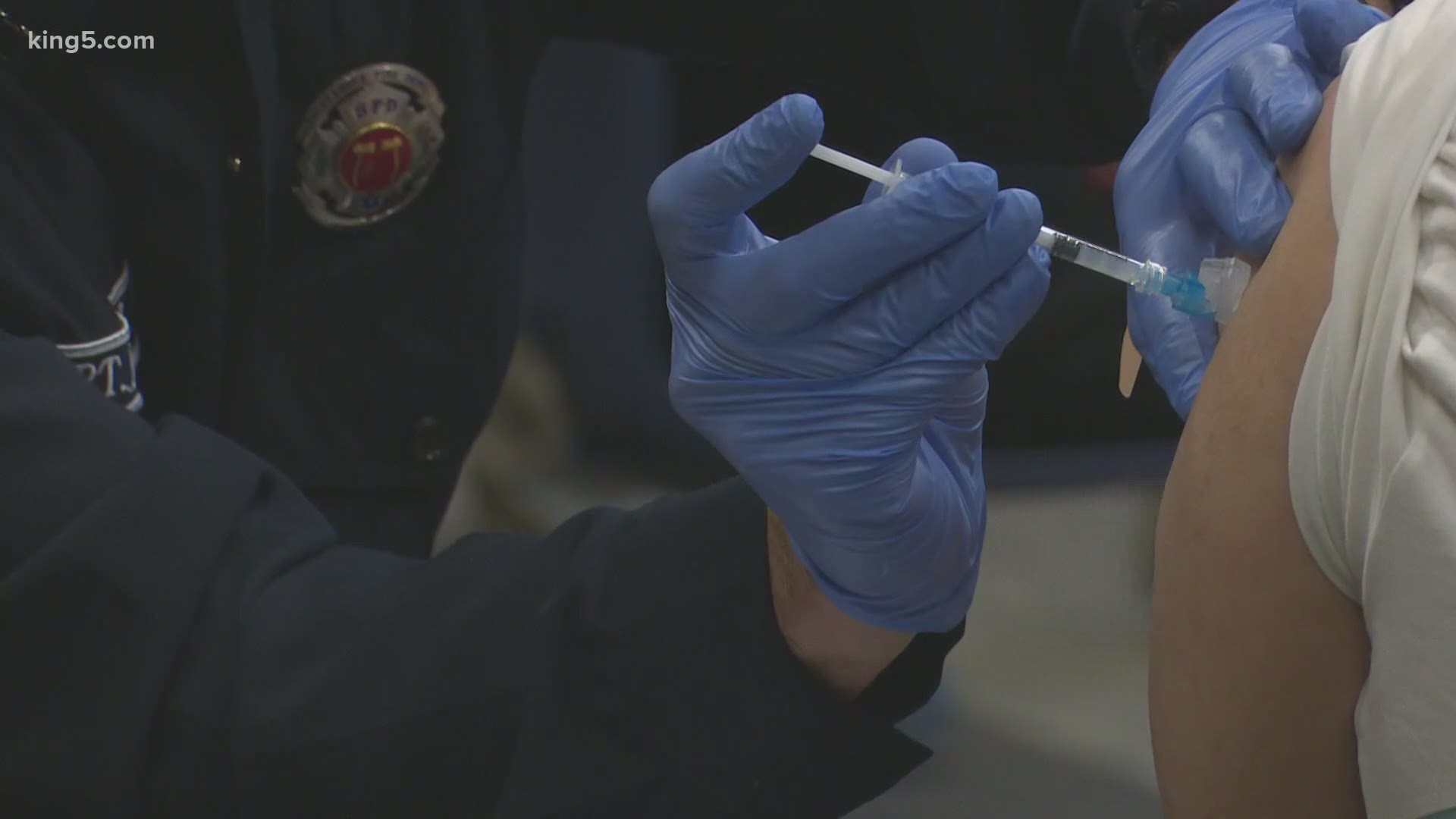SEATTLE — The City of Seattle wants to be the first city in America to vaccinate 70% of its workers and residents, according to its vaccination plan.
The plan, which was presented to Seattle City Council on Tuesday, looks to provide 1.26 million COVID-19 vaccines to adults. The city's goal for February is 160,000 vaccines. It plans to increase distribution with supply.
"The city's plan is very, robustly informed by public health experts," said Seattle City Council President Lorena González.
The city will operate at least two mass vaccination sites through the Seattle Fire Department. The city's plan also highlights sponsored, mass vaccination sites through partnerships with health care providers. The exact locations of the mass vaccination sites have not been determined.
According to the city's plan, mass vaccination sites could give up to 18,500 doses a day. Healthcare systems like hospitals, clinics and pharmacies could give up to 10,000 doses a day, and the Seattle Fire Department’s mobile teams could give up to 2,500 doses a day.
That means once vaccine supply meets demand the City of Seattle could vaccinate as many as 31,500 people each day. That’s 70% of the entire state’s goal of administering 45,000 vaccinations a day.
"With enough supply of doses, we could reach herd immunity in the City of Seattle within a month. Obviously, that’s not the reality of this situation we’re facing once we get the doses," said Julie Kline with the mayor’s office.
The city's plan details the need for equitable distribution. González called it one of the city's top priorities.
"Right now, what we're seeing is those who understand how to access the internet, those who have connections or who have a higher level of ability to navigate bureaucracy are the ones who are faring the best, in terms of accessing vaccinations," said González. "Unfortunately, that means it is leaving a lot of our elderly population, communities of color and non-English speaking communities out in the cold."
She said the city government will work with current health care systems, that already have relationships with communities, to bring vaccines to neighborhoods where people might face language or internet barriers.
"That's I think what the model is going to be in this case, using our community partners and infrastructure that's in place already to be able to really tap into the trust they have with immigrant, refugee, senior communities and use them as effective messengers for navigating the system," said González. "So, I think it can be done effectively and I think it can be done cost-effectively."
Council hasn't determined how much the mass and targeted approaches will cost. However, the city's plan says it will receive some funding from the federal government, including a 100% cost match through FEMA for "vaccinated related activities and costs."

